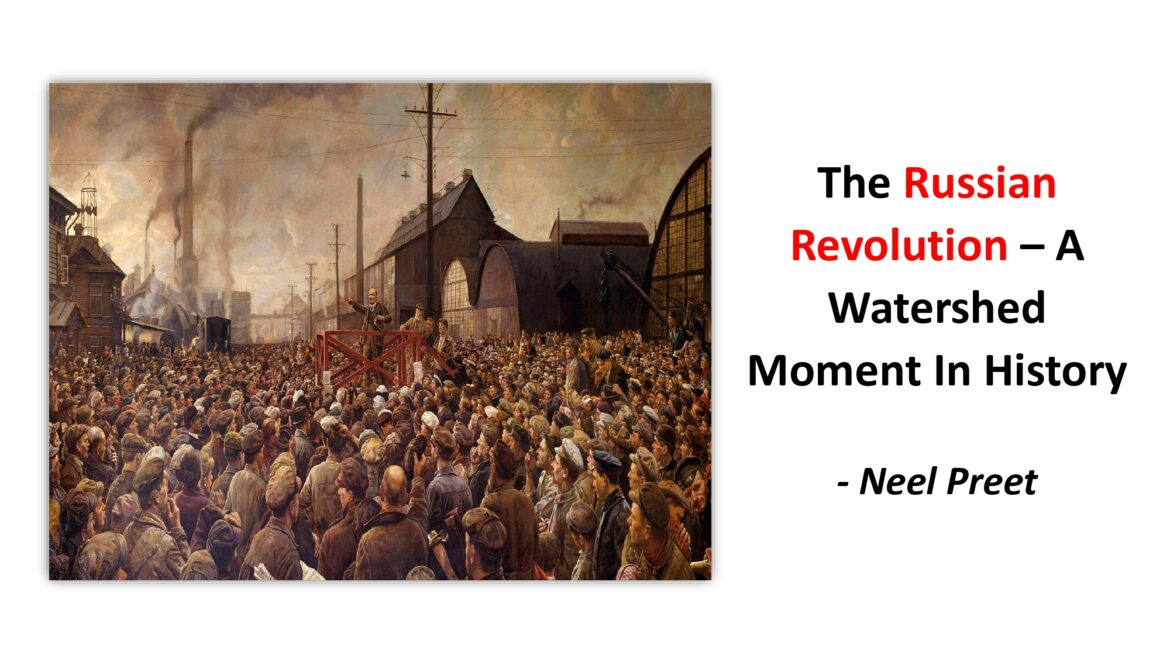Introduction: The Russian Revolution of 1917 was a monumental event that profoundly transformed Russia and had far-reaching consequences for the world. It marked the end of the Romanov dynasty, toppled the autocratic Tsarist regime, and paved the way for the establishment of the Soviet Union. In this article, we will delve into the causes, key events, and consequences of the Russian Revolution, highlighting its significance as a watershed moment in history!
- Causes of the Russian Revolution: The Russian Revolution was a result of a complex interplay of social, economic, and political factors. Decades of oppression, economic inequality, and political repression under Tsar Nicholas II had created a deep sense of dissatisfaction among the Russian people. The impact of World War I, which led to economic hardships and military defeats, further exacerbated the unrest.
- The February Revolution: The Russian Revolution unfolded in two major phases. The first phase, known as the February Revolution, occurred in 1917. It was sparked by protests and strikes in Petrograd (now St. Petersburg) due to food shortages and war weariness. The unrest quickly spread across the country, resulting in the abdication of Tsar Nicholas II and the formation of a provisional government!
- The October Revolution: The second phase, known as the October Revolution, took place later in 1917. Led by the Bolshevik Party, headed by Vladimir Lenin, this revolution aimed to establish a socialist state. The Bolsheviks, with the support of the workers, peasants, and soldiers, overthrew the provisional government and seized power. This led to the formation of the Russian Soviet Federative Socialist Republic and laid the foundation for the establishment of the Soviet Union.
- Impact and Consequences: The Russian Revolution had profound and long-lasting consequences. Firstly, it ended centuries of autocratic rule and brought an end to the Romanov dynasty. Secondly, it laid the groundwork for the establishment of the world’s first communist state, which would have a significant impact on global politics throughout the 20th century. The revolution also sparked a wave of socialist and communist movements around the world!
- Social and Economic Transformations: The Russian Revolution brought about significant social and economic transformations. The Bolsheviks implemented radical policies such as land redistribution, nationalization of industry, and the establishment of collective farms. These measures aimed to address the grievances of the peasants and workers, but also led to significant disruption and resistance.
- Challenges and Consolidation of Power: The aftermath of the revolution was marked by numerous challenges, including a brutal civil war between the Bolsheviks and their opponents. The Bolsheviks, under Lenin’s leadership, managed to emerge victorious and consolidate their power. The establishment of the Soviet Union in 1922 marked the beginning of a new era in Russian history!
- International Impact: The Russian Revolution had a profound impact on the global stage. It inspired socialist and communist movements worldwide and led to the establishment of communist states in several countries. The revolution also intensified the ideological struggle between capitalism and communism, which shaped the course of the 20th century, particularly during the Cold War.
Conclusion: The Russian Revolution of 1917 was a transformative event that forever altered the course of Russian and world history. It marked the end of autocracy, led to the establishment of the Soviet Union, and sparked a wave of socialist and communist movements. The revolution had far-reaching consequences that shaped global politics, ideology, and socio-economic structures. Its significance as a watershed moment cannot be overstated, as it challenged existing power structures, unleashed social and economic transformations, and left an indelible mark on the 20th century!
Written By NEEL PREET – Author of the Books, Voice From The East (2016); Journey With Time Place And Circumstances (2018) & Indian Defence Files (2021).



